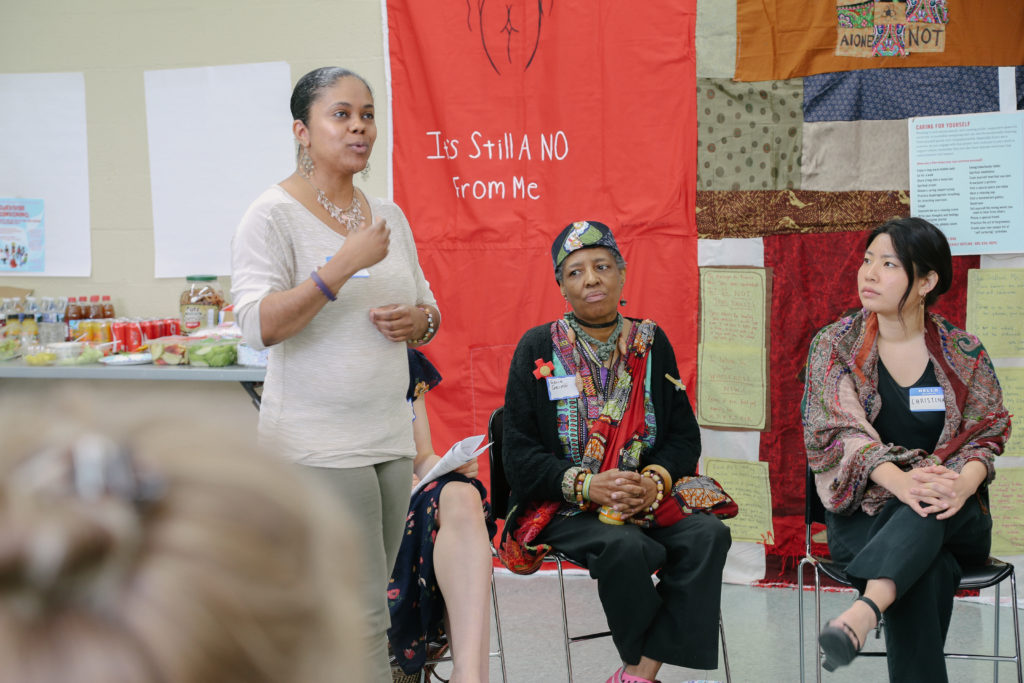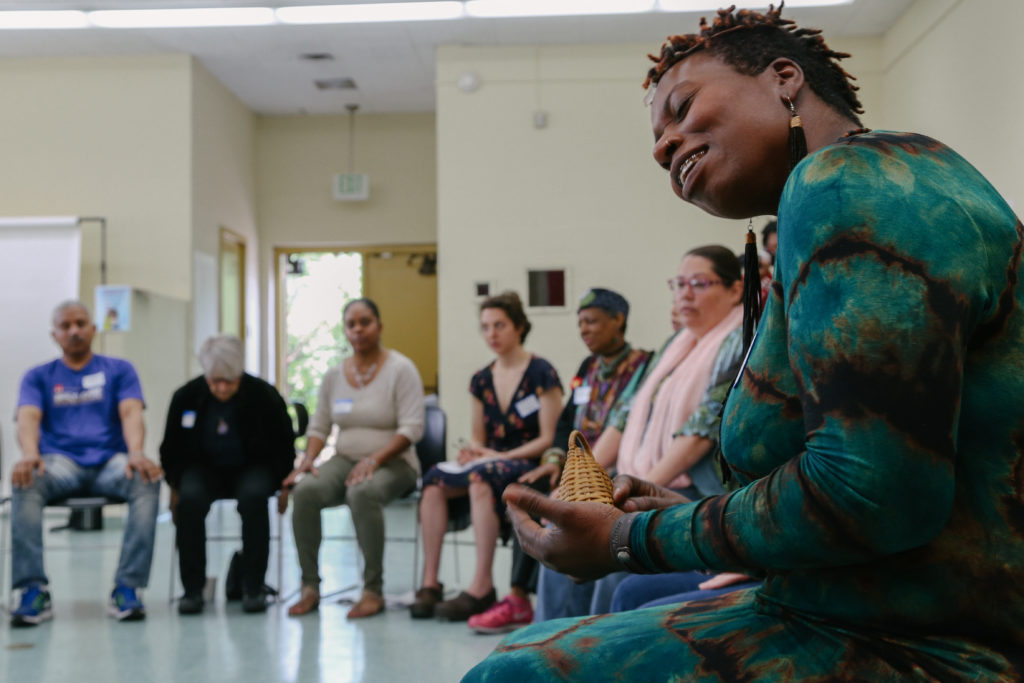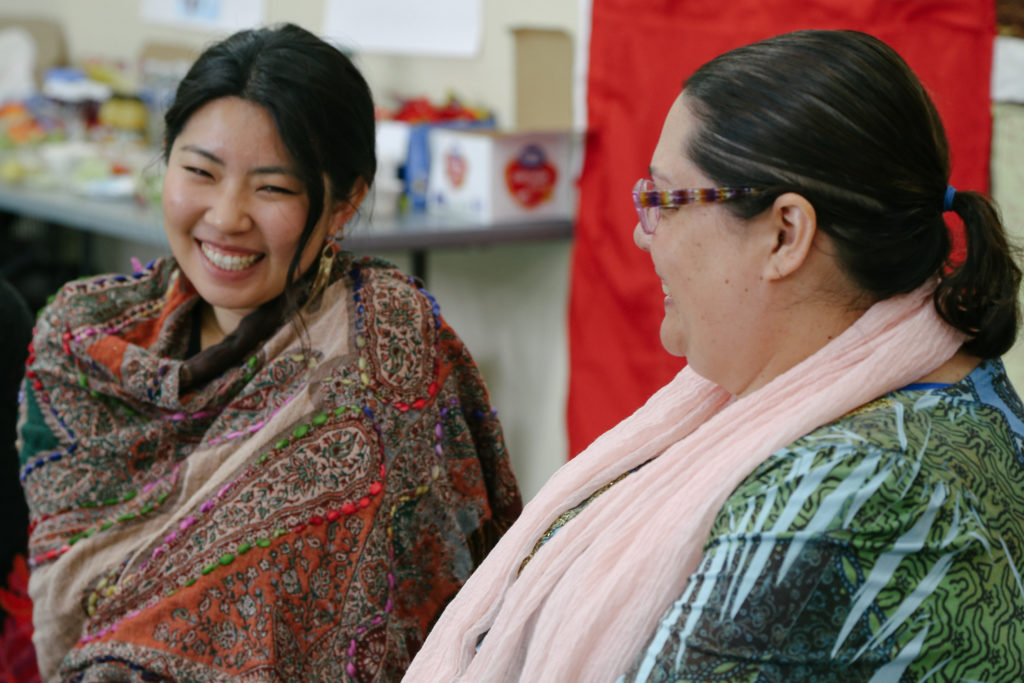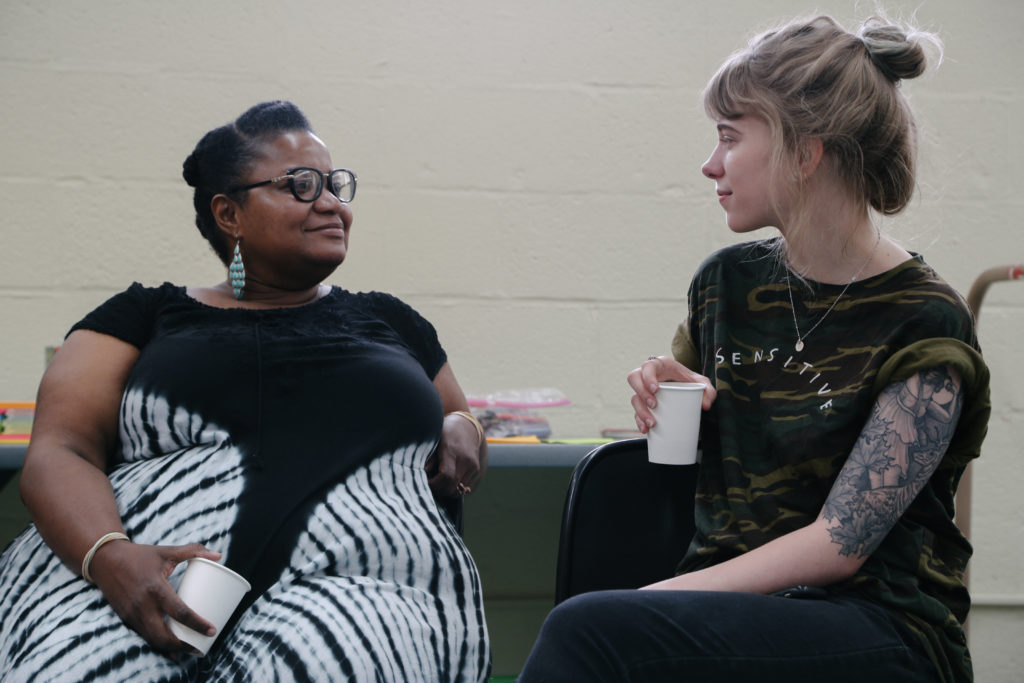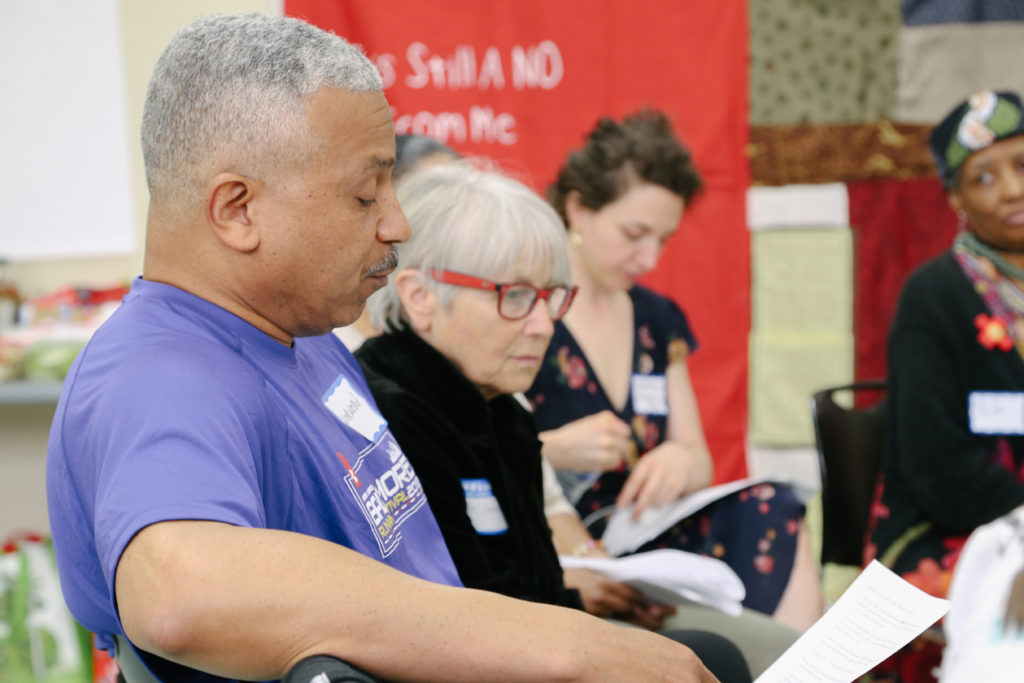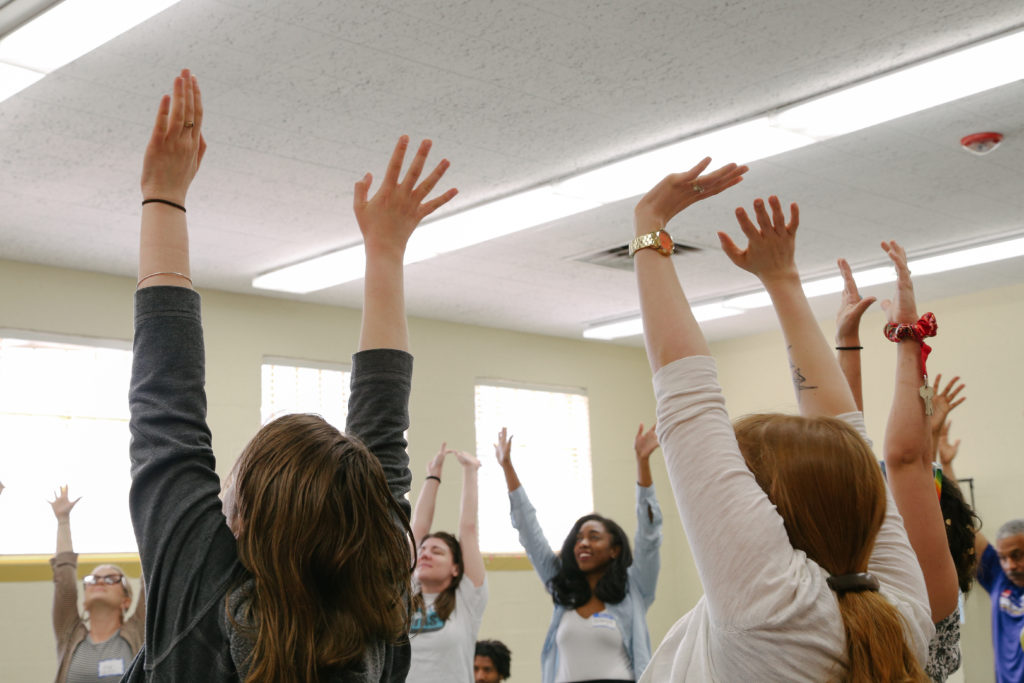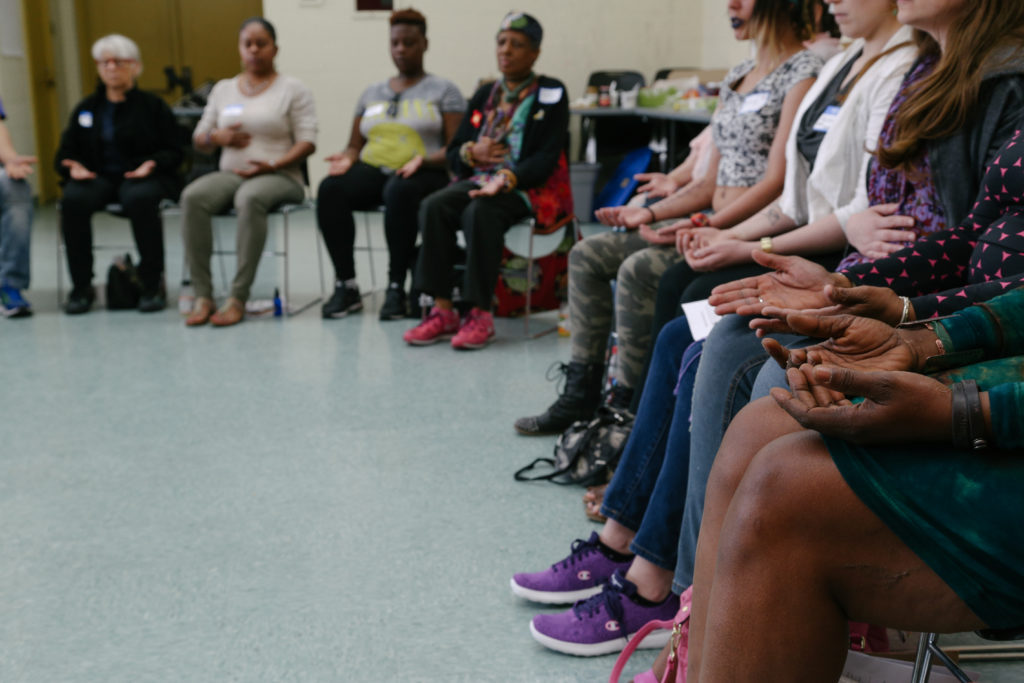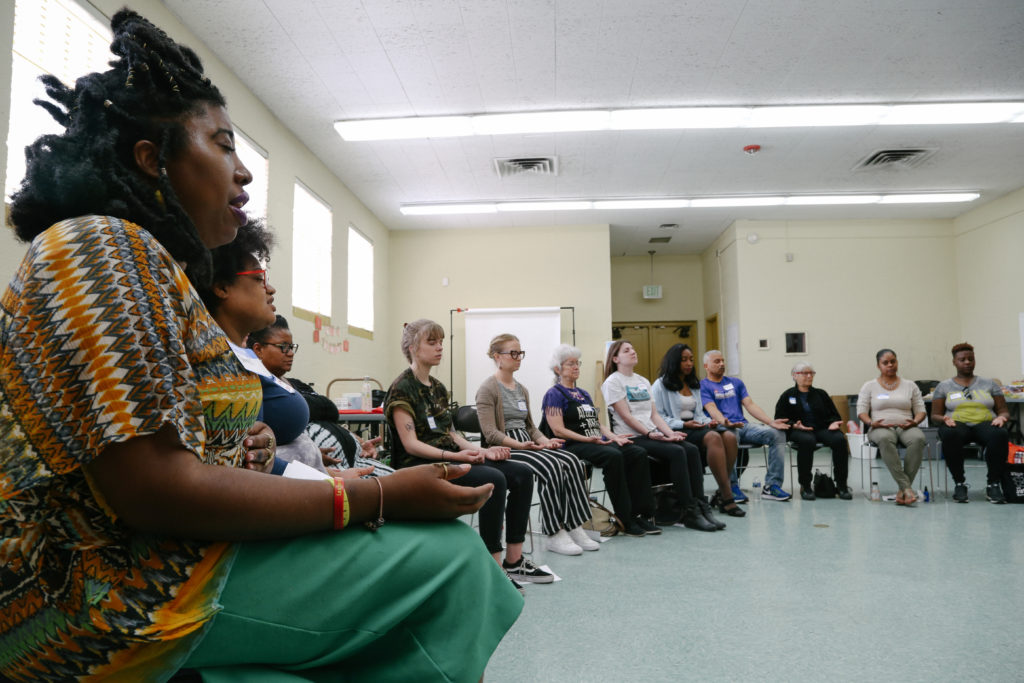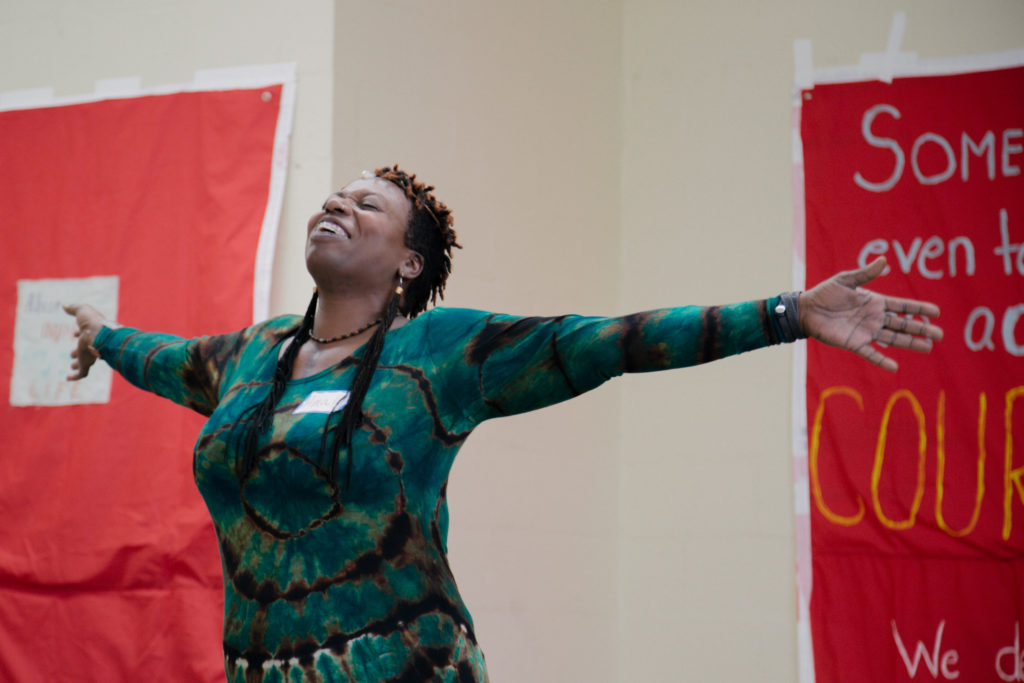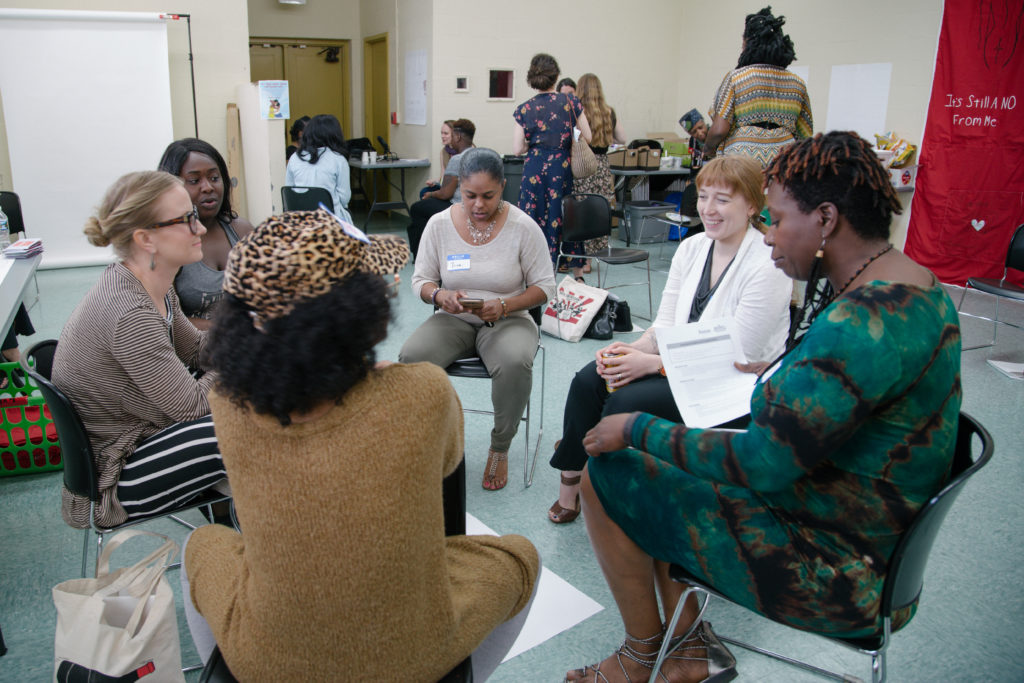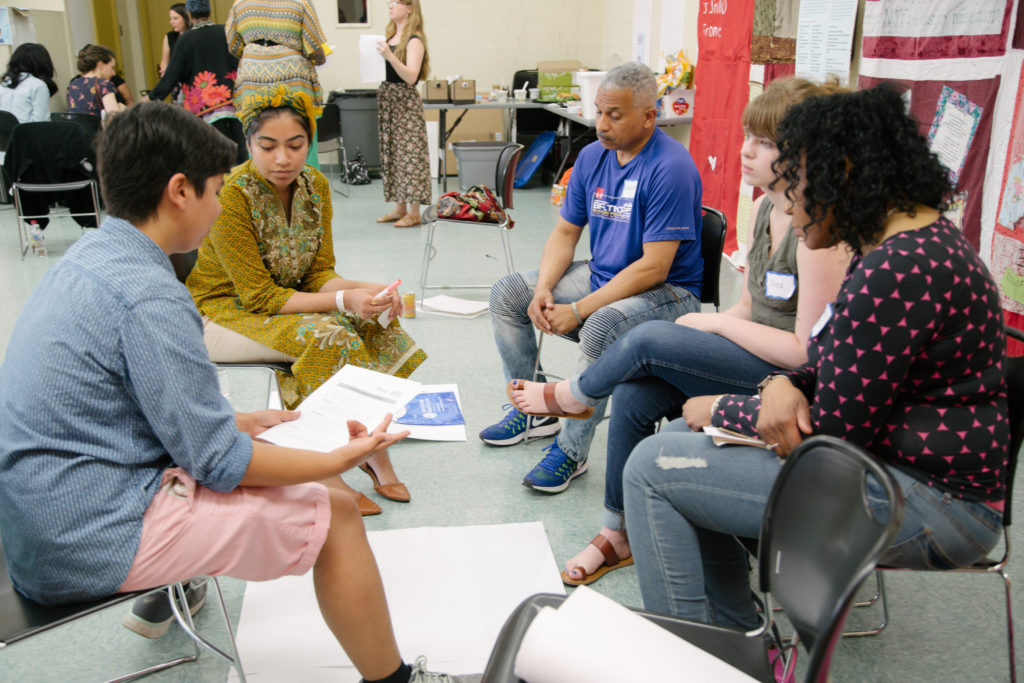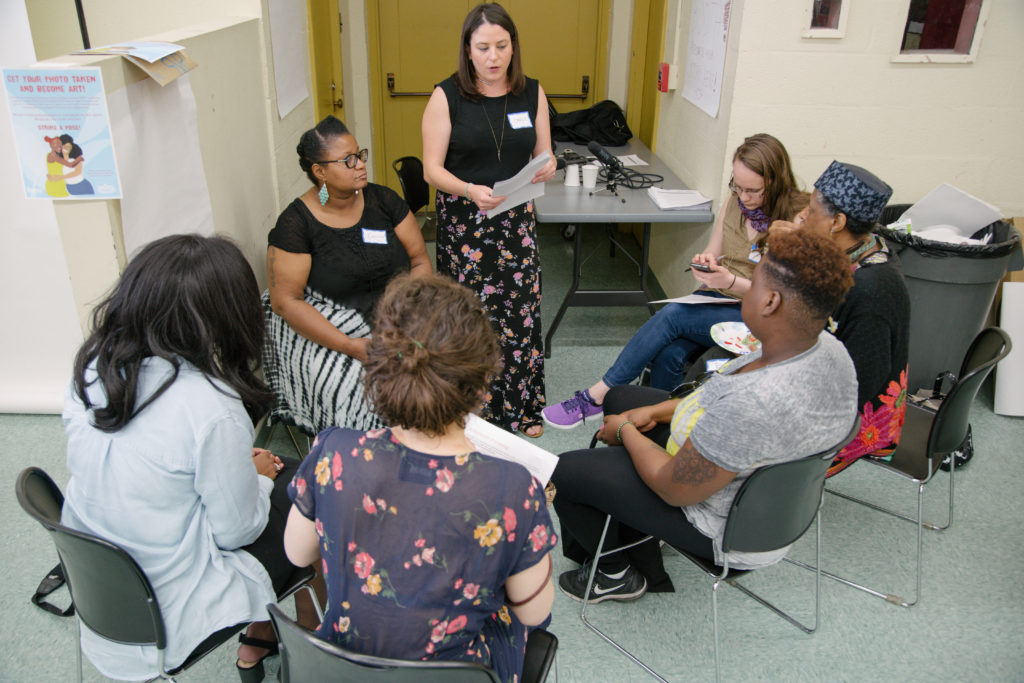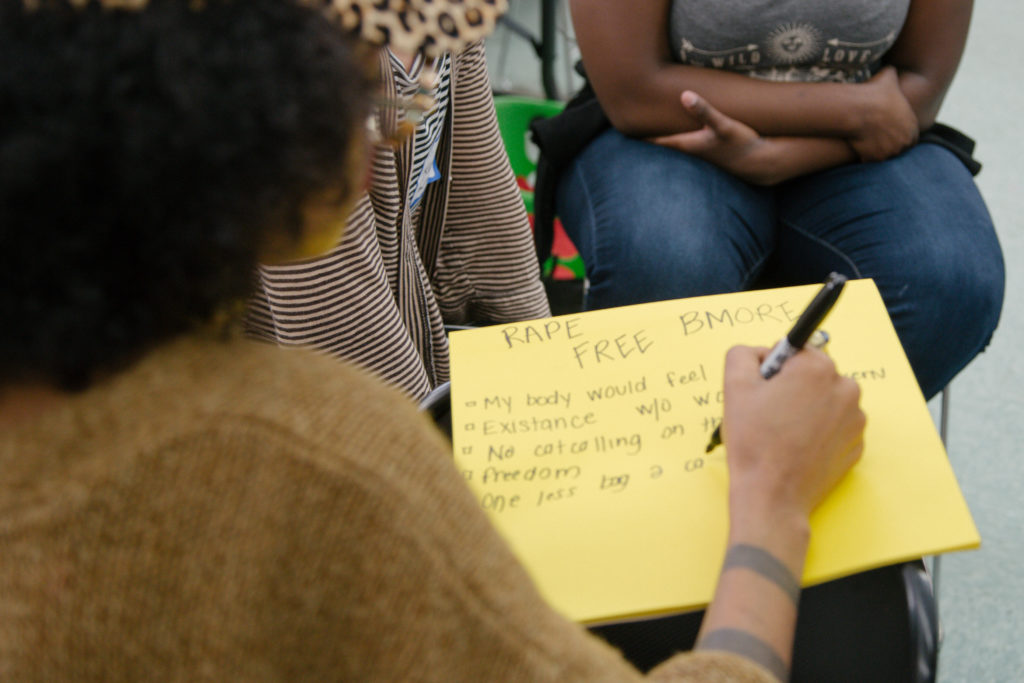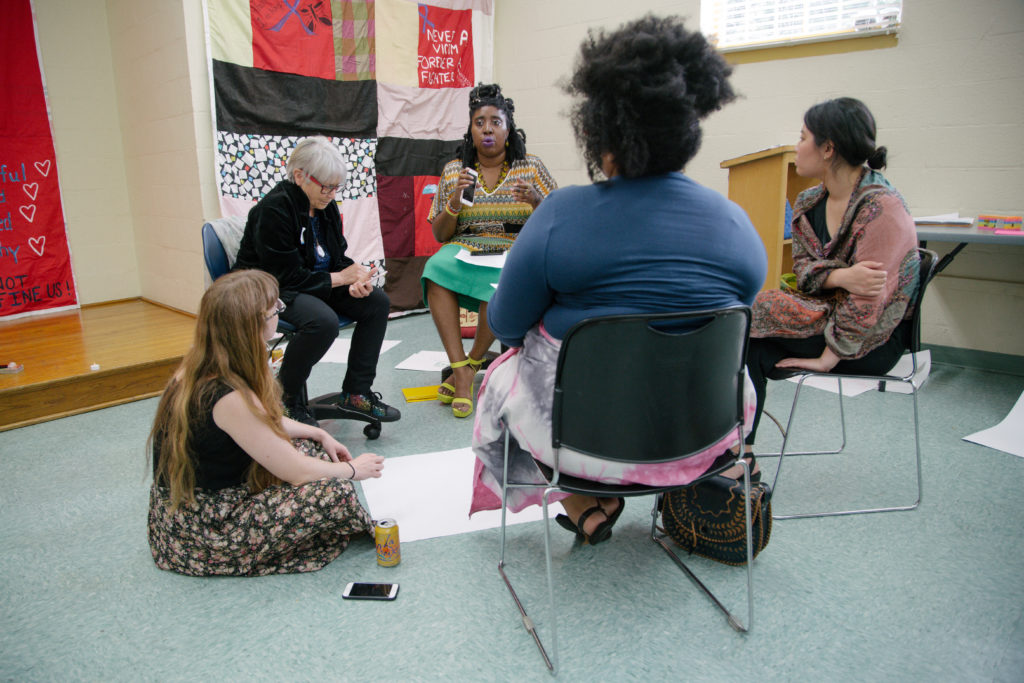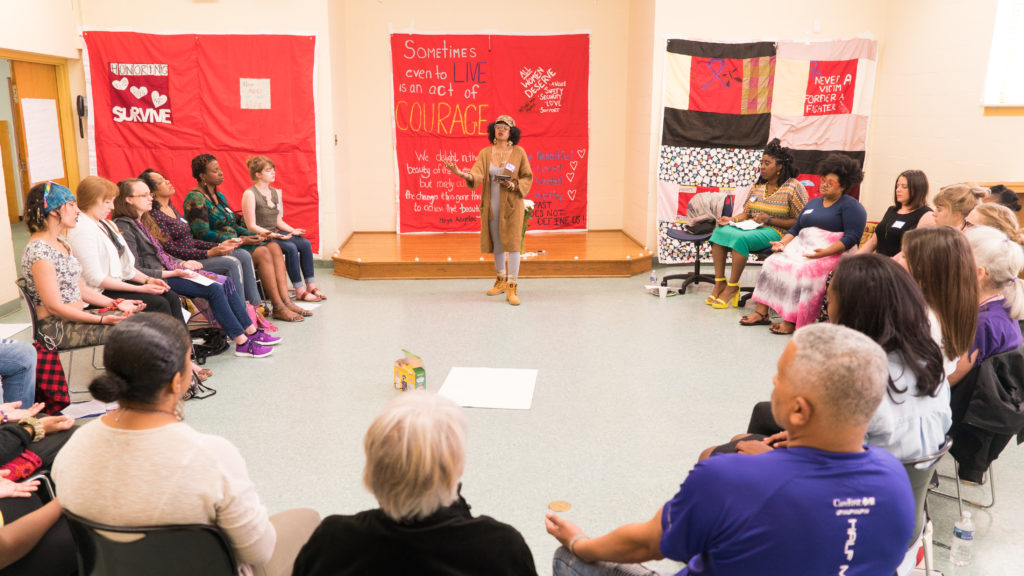From 2018-2019, FORCE’s survivor collective Gather Together organized the Listening Campaign to Disrupt Rape Culture, to build a base of engaged voters who have been impacted by sexual and domestic violence. Using participatory action research, FORCE coordinated Listening Circles and a Survivor Convening, partnering with faith based groups and ministries, LGBTQIA+ safe spaces, and advocacy/support groups for former Sex Workers, drug users, and youth groups. Within small groups of 4 and up to 20, victim-survivors were able to freely share their experiences and hopes amongst peer as a first step to building the consent culture we fight for. In 2019, we worked to code major themes that emerged from these talks and are working to synthesize applications, solutions, and organizing strategies.
A total of 132 survivors were interviewed as part of the Listening Campaign, through Listening Circles with 13 organizations. Though no two listening circles were alike, there were some uniting themes that help us to understand the complex and intersected experiences of victim-survivors. Understanding these realities, will help us create a cooperative organizing agenda to which survivors can be proud of:
- Shared Experiences of Abuse from family or intimate partners.
- Intimate and Connected Relationships with preptators
- Frustration with access to state and local resources for support/barriers to resources.
- Shared aftermath of trauma
- Complications with Access to Safety
- The desire to hold community, family and preptators should be accountable for their actions
- Additional and needed community and family support
- Defining and embodying healing and what it means to be a survivor
- Unpacking Rape Culture
- Developing Self Respect on your own terms post trauma
LISTENING CAMPAIGN CONCLUSION AND RECOMMENDATIONS: What can we take from these early findings? The first is that victim-survivors are eager to have their voices centered in the struggle for our rights. And equally as important is the need for families and community to see victim-survivors beyond their trauma and as agents of their own experiences and leaders within the diverse survivorship movements. Here are some key areas that Baltimore based victim- survivors have articulated amongst their peers and some of the initial shared recommendations for mobilizing:
- Centering the experiences of Trans folk within survivorship work.
- Developing holistic sexual health education starting with PRE-K that holds all people, not just women and girls, accountable for building consent culture/understanding consent/ and understanding their own sexuality.
- Creating more Survivor Safe Spaces where victim-survivors can process their trauma without judgement.
- More public discussions highlighting the global impact of Wife Rape to dismantle rape culture
- Partnerships with prison abolition, decriminalizing sex work, and LGBTQIA+ justice groups to broaden the scope of survivorship and create a truly inclusive and intersectional movement.
- Developing comprehensive education for medical professionals created by victim-survivors to properly support victim-survivors.
- Advocate and develop affordable housing specifically designed by and for victim-survivors.
- Creating more space for victim-survivors to serve as leaders in survivorship and connected social justice movements which include direct emphasis on guides to PTSD and mental health challenges complicated by survivorship.
- Creating public safe spaces from street harassment and violence against women, people of color, and queer folk in every state that is actual sanctioned and support by local and national governments.
These are some of the ways that victim-survivors wish to build a rape free Baltimore City and beyond.

